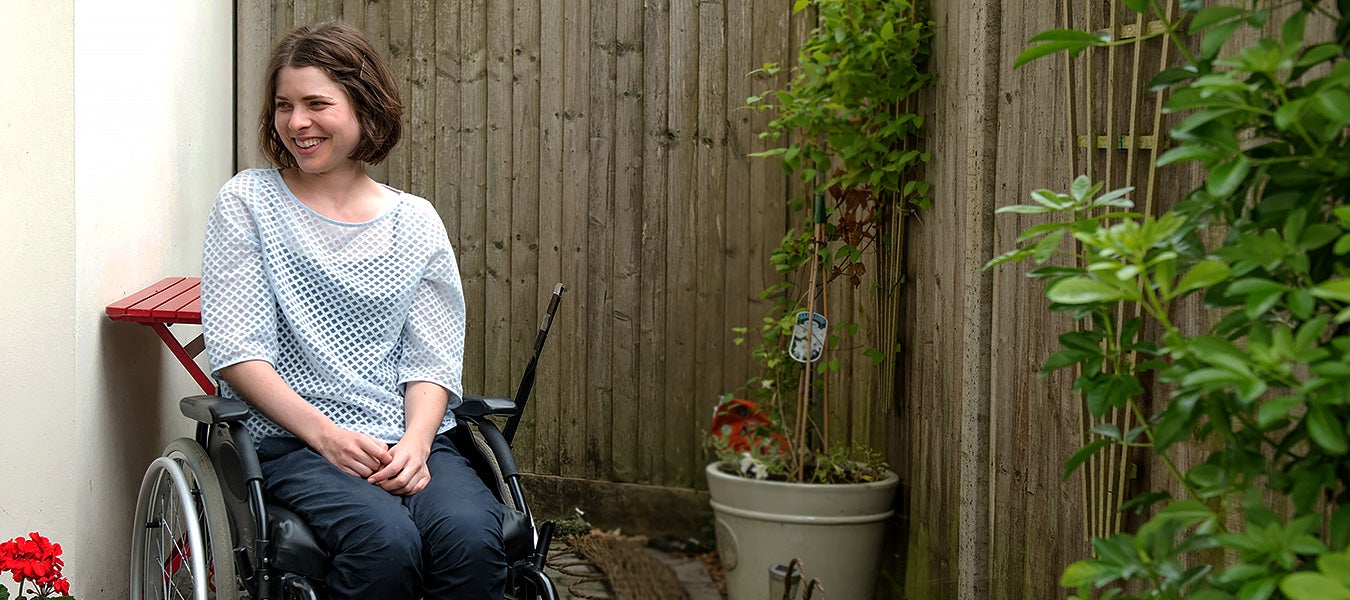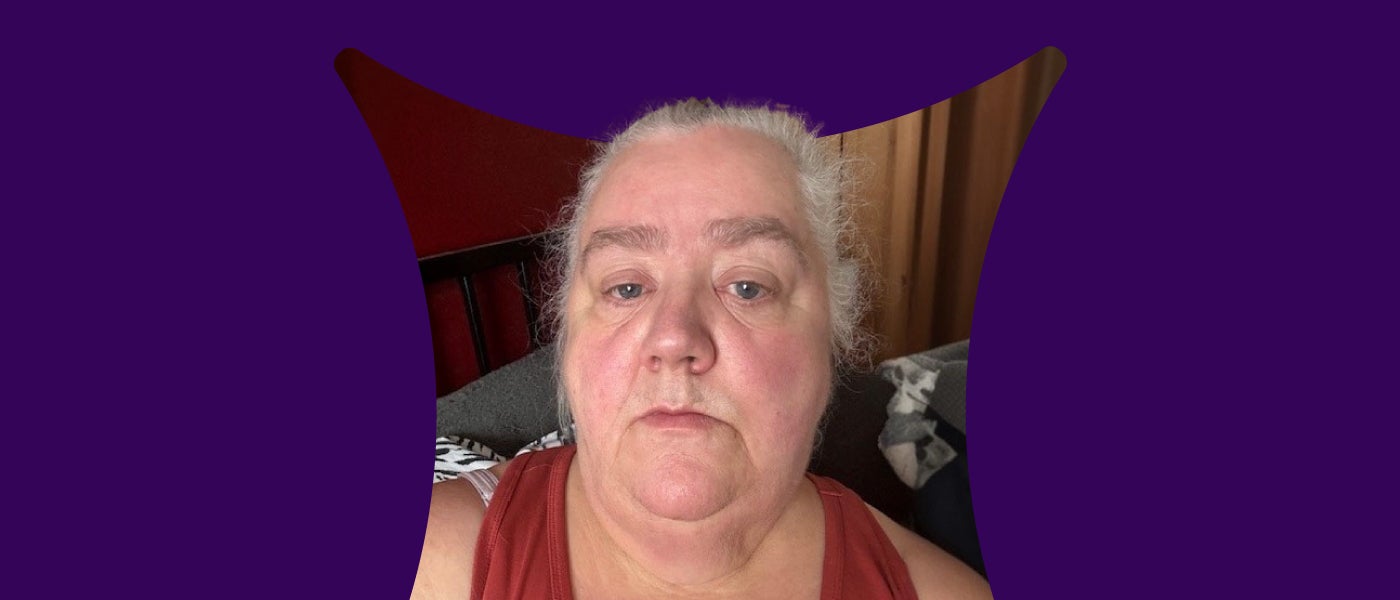- Home
- News and stories
- My disability limits my career prospects
My disability limits my career prospects
 28 May 2019
28 May 2019
I have Multiple Sclerosis (MS). I was diagnosed at 16, but my MS didn’t really kick in until I was 23. I went to university and was having weekly self-injections to manage the illness, but other than that it wasn’t obvious at all. I was able to graduate and start thinking about a career in my chosen field, finance.
I successfully applied for a graduate scheme at one of London’s biggest accountancy firms. During the recruitment process, I didn’t disclose my MS because the question on the recruitment form was ‘Do you consider yourself to be disabled?’. It was a very subjective question and certainly not how I thought about myself.
Overall though, my first employer was supportive of my impairment. I spoke to my manager about my MS as soon as I got the job and they provided occupational health. I was also studying for my accountancy exams at the time, so they got me extra time and a scribe for my exams.
During my first year in the job, I had a big relapse on my right hand and wasn’t able to handwrite any more. My health was getting worse and it was quite new to me. I didn’t know what to ask for. What would help. Or what I needed.
In hindsight I would have needed more guidance from them by telling me what the options were, because I didn’t know. It was my first job and I was quite young, so didn’t have the experience or assertiveness. It would have been better if they’d said, ‘This is what we can do for you’ rather than asking ‘what do you need?’
I had more career choices than I thought
I stayed in London with that company for 4 and half years. At that point I was using 2 crutches to walk, I was really limited. Getting to clients, even just getting around the office was difficult. I was exhausted from spending so much energy getting into work as well.
Moving into a wheelchair was a massive psychological adjustment. The thought of trying to find a new accessible flat in London while trying to stay in work, and learning to use a wheelchair, was just too much. The best way I can describe it, is that I was in survival mode and my job was secondary to that. I moved home with my parents and started from scratch.
At that point I thought my career was over, I’d just have to find any job I could. I didn’t know when I moved back what would be available to me. I was lucky with how the move panned out, because a big supermarket chain were recruiting finance vacancies and I fitted the job description. So, I ended up feeling like I had more choice than I expected to.
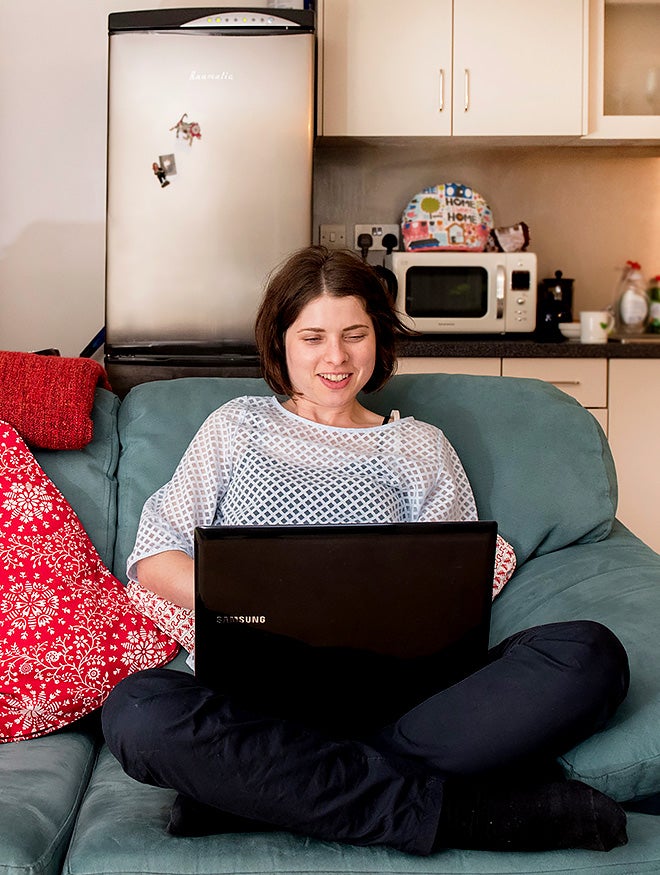
Being disabled means my career prospects are limited
I’ve been in my role for 3 years now and the company have been great about giving me flexible hours and days working from home.
I do feel like my future career prospects are limited because I’m physically restricted to where I can go to work. Right now, I can’t see where the next stage of my career is. I can’t commute to nearby cities, such as London or Cambridge, where there's more choice, because I just don’t have the physical energy to do that on top of a day’s work.
My impairment limits my career prospects quite a lot. I’ve accepted that. I work for a massive company with so many opportunities, but the easiest way to get a pay rise or promotion is to move externally and get experience in other companies.
In a parallel world where these things weren’t such an issue, I’d still be in London working at my third or fourth company and probably earning more than I do now, but it’s something I don’t have control over.
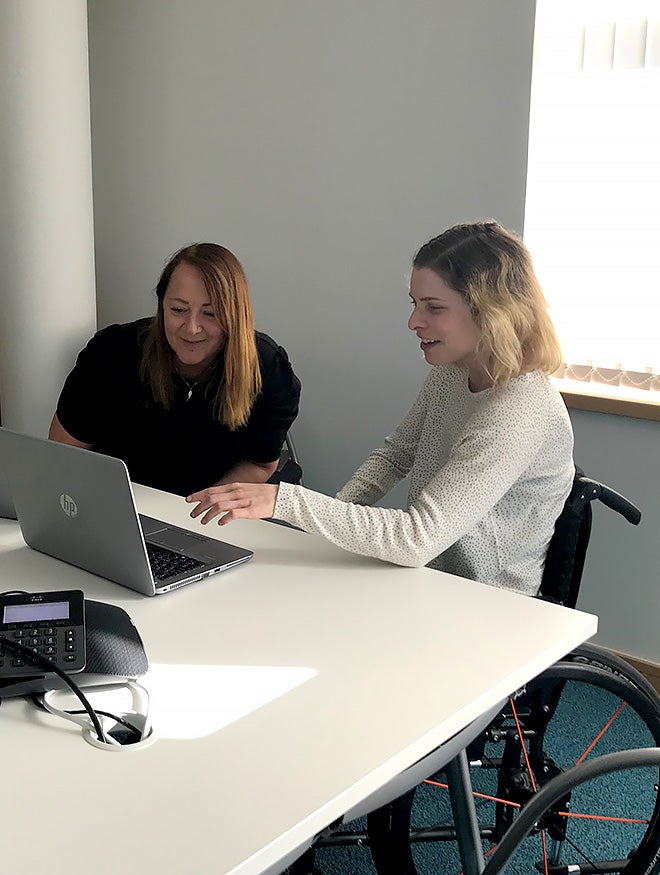
Staying in work is much harder when you're disabled
As lucky as I’ve been to find my job, my situation is by no means perfect. All the extra admin of being disabled and staying in employment is huge. I constantly have to schedule and balance letters about hospital appointments and occupational support, as well as prescriptions and social care. It’s so time consuming that it takes 3 or 4 hours out of my working week, which then puts pressure on my time.
When it comes to supporting disabled people in work, everything’s just so interlinked; if transport were better, if social care were better, if accessible accommodation were better and if employers were more flexible, then maybe I could commute and have more choice. But you need those 4 things to dramatically improve together.
Scope's campaign with Virgin Media is encouraging employers to pledge to be more inclusive. They're providing resources for employers that includes top tips, guides on workplace accessibility and how line managers can support disabled people at work.
You can read more about my experiences as a disabled person on my blog, Think In Decimals.
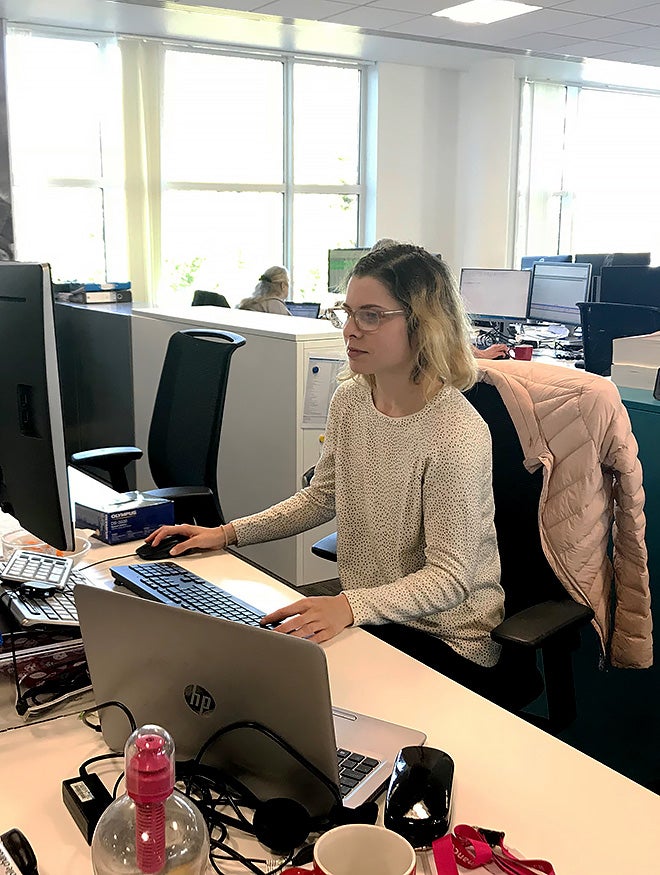
 28 May 2019
28 May 2019


